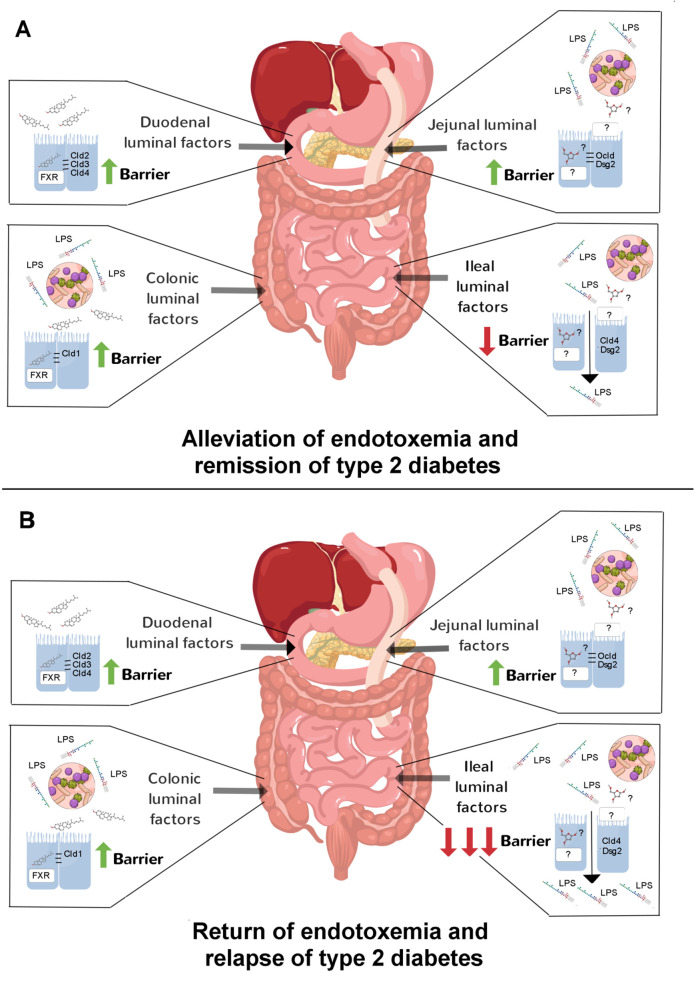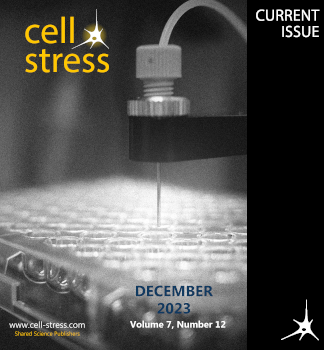通过减肥手术建立并打破肠道屏障。
IF 4.1
Q2 CELL BIOLOGY
引用次数: 1
摘要
减肥手术已被提议通过稳定肠道屏障和减轻内毒素血症引起的胰岛素抵抗来改善病态肥胖患者的血糖控制。在这里,最近的研究突出显示了特定部位的减肥手术对肠道屏障的影响,有时是相反的。进一步了解潜在的机制不仅可以为开发新的基于肠道的2型糖尿病初始治疗药物提供信息,而且可能有助于控制其最终复发。本文章由计算机程序翻译,如有差异,请以英文原文为准。

Building and breaking the gut barrier with bariatric surgery.
Bariatric surgery has been proposed to improve glycemic control in morbidly obese patients by stabilising the gut barrier and alleviating endotoxemia-induced insulin resistance. Here, recent studies are highlighted which reveal site-specific and at times opposing effects of bariatric surgery on the gut barrier. Further understanding the underlying mechanisms may not only inform the development of novel gut-based drugs for the initial treatment of type 2 diabetes, but possibly also assist in the management of its eventual relapse.
求助全文
通过发布文献求助,成功后即可免费获取论文全文。
去求助
来源期刊

Cell Stress
Biochemistry, Genetics and Molecular Biology-Biochemistry, Genetics and Molecular Biology (miscellaneous)
CiteScore
13.50
自引率
0.00%
发文量
21
审稿时长
15 weeks
期刊介绍:
Cell Stress is an open-access, peer-reviewed journal that is dedicated to publishing highly relevant research in the field of cellular pathology. The journal focuses on advancing our understanding of the molecular, mechanistic, phenotypic, and other critical aspects that underpin cellular dysfunction and disease. It specifically aims to foster cell biology research that is applicable to a range of significant human diseases, including neurodegenerative disorders, myopathies, mitochondriopathies, infectious diseases, cancer, and pathological aging.
The scope of Cell Stress is broad, welcoming submissions that represent a spectrum of research from fundamental to translational and clinical studies. The journal is a valuable resource for scientists, educators, and policymakers worldwide, as well as for any individual with an interest in cellular pathology. It serves as a platform for the dissemination of research findings that are instrumental in the investigation, classification, diagnosis, and therapeutic management of major diseases. By being open-access, Cell Stress ensures that its content is freely available to a global audience, thereby promoting international scientific collaboration and accelerating the exchange of knowledge within the research community.
 求助内容:
求助内容: 应助结果提醒方式:
应助结果提醒方式:


